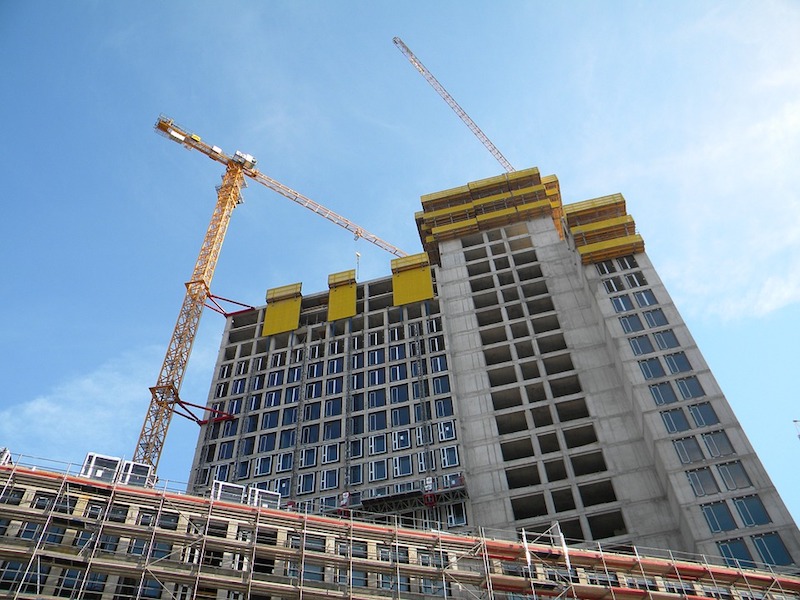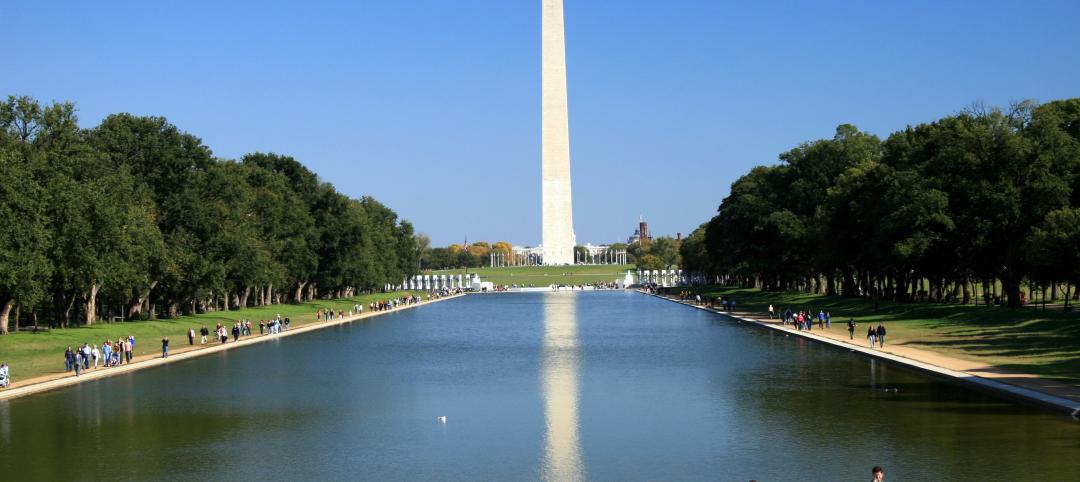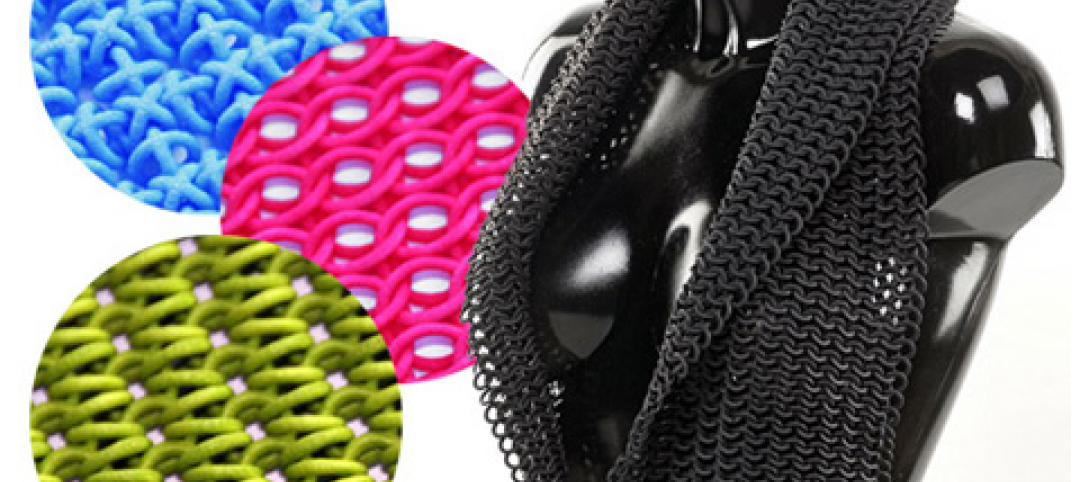Coming off a record-setting year for the nonresidential construction industry (more than $760 billion was spent on new construction and renovation work nationwide last year), AEC firm leaders should be brimming with confidence over the growth potential for their firms heading into 2019. The arrow is pointing up for nearly all building sectors, construction backlogs remain healthy, and architecture firms continue to see strong demand for their design services, according to AIA and ABC data.
Yet despite the positive indicators for the market, AEC professionals remain largely cautious when it comes to growth prospects for 2019. In October, BD+C surveyed 314 readers about their thoughts on a variety of issues: materials prices, bid prices, obstacles to growth, emerging opportunities, etc. Only slightly more than half (56.0%) of industry professionals expect higher revenue for their firm in 2018 compared to last year. More surprisingly, 13.4% are forecasting a decrease in revenue.
And their forecast for 2019 isn’t much rosier: 54.7% expect revenue to increase, 8.7% call for a drop, and 36.7% predict flat revenue this year. This is a markedly different sentiment than last year’s respondents, who were much more upbeat with their forecasts for the upcoming year: 62.0% predicted revenue to rise and only 6.1% called for it to drop.
When asked about their top concerns for 2019, the largest number of respondents cited “general economic conditions” (52.7%) as a key issue, followed by “competition from other firms” (41.0%) and “price increases in materials and services” (39.0%). In fact, nearly 90% of respondents anticipate construction materials prices to rise in 2019. That’s up from 86% in last year’s survey of BD+C readers.
See Also: And then there were two: HQ2 sites, in hindsight, seemed obvious
To help keep their project pipelines full through 2019, AEC firms are focusing on a number of business development strategies heading into this year. Selective hires (44.1%) and marketing/public relations efforts (42.2%) top the list, followed by investments in technology (39.0%), staff training/education (35.9%), and new services/business opportunities (29.2%).
Healthcare facilities and multifamily housing head the list of the hottest sectors heading into 2019, according to survey respondents. More than half (52.5%) indicated that the prospects for healthcare/hospital work were either “excellent” or “good” for 2019; 52.4% said the same for multifamily housing work. Other strong building sectors: senior/assisted living facilities (51.9%), office interiors/fitouts (46.9%), industrial/warehouse buildings (42.7%), hotel/hospitality developments (39.7%), university facilities (38.2%), government/military buildings (37.5%), and office buildings (37.4).
Related Stories
| Nov 10, 2010
$700 million plan to restore the National Mall
The National Mall—known as America’s front yard—is being targeted for a massive rehab and restoration that could cost as much as $700 million (it’s estimated that the Mall has $400 million in deferred maintenance alone). A few of the proposed projects: refurbishing the Grant Memorial, replacing the Capitol Reflecting Pool with a smaller pool or fountain, reconstructing the Constitution Gardens lake and constructing a multipurpose visitor center, and replacing the Sylvan Theater near the Washington Monument with a new multipurpose facility.
| Nov 9, 2010
Just how green is that college campus?
The College Sustainability Report Card 2011 evaluated colleges and universities in the U.S. and Canada with the 300 largest endowments—plus 22 others that asked to be included in the GreenReportCard.org study—on nine categories, including climate change, energy use, green building, and investment priorities. More than half (56%) earned a B or better, but 6% got a D. Can you guess which is the greenest of these: UC San Diego, Dickinson College, University of Calgary, and Dartmouth? Hint: The Red Devil has turned green.
| Nov 9, 2010
12 incredible objects being made with 3D printers today
BD+C has reported on how 3D printers are attracting the attention of AEC firms. Now you can see how other creative types are utilizing this fascinating printing technology. Among the printed items: King Tut’s remains, designer shoes, and the world’s smallest Rubik’s Cube.
| Nov 9, 2010
U.S. Army steps up requirements for greening building
Cool roofs, solar water heating, and advanced metering are among energy-efficiency elements that will have to be used in new permanent Army buildings in the U.S. and abroad starting in FY 2013. Designs for new construction and major renovations will incorporate sustainable design and development principles contained in ASHRAE 189.1.
| Nov 9, 2010
Designing a library? Don’t focus on books
How do you design a library when print books are no longer its core business? Turn them into massive study halls. That’s what designers did at the University of Amsterdam, where they transformed the existing 27,000-sf library into a study center—without any visible books. About 2,000 students visit the facility daily and encounter workspaces instead of stacks.
| Nov 9, 2010
Turner Construction report: Green buildings still on the agenda
Green buildings continue to be on the agenda for real estate owners, developers, and corporate owner-occupants, according to the Turner 2010 Green Building Market Barometer. Key findings: Almost 90% of respondents said it was extremely or very likely they would incorporate energy-efficiency improvements in their new construction or renovation project, and 60% expected to incorporate improvements to water efficiency, indoor environmental quality, and green materials.
| Nov 5, 2010
New Millennium’s Gary Heasley on BIM, LEED, and the nonresidential market
Gary Heasley, president of New Millennium Building Systems, Fort Wayne, Ind., and EVP of its parent company, Steel Dynamics, Inc., tells BD+C’s Robert Cassidy about the Steel Joist Manufacturer’s westward expansion, its push to create BIM tools for its products, LEED, and the outlook for the nonresidential construction market.
| Nov 3, 2010
First of three green labs opens at Iowa State University
Designed by ZGF Architects, in association with OPN Architects, the Biorenewable Research Laboratory on the Ames campus of Iowa State University is the first of three projects completed as part of the school’s Biorenewables Complex. The 71,800-sf LEED Gold project is one of three wings that will make up the 210,000-sf complex.
| Nov 3, 2010
Park’s green education center a lesson in sustainability
The new Cantigny Outdoor Education Center, located within the 500-acre Cantigny Park in Wheaton, Ill., earned LEED Silver. Designed by DLA Architects, the 3,100-sf multipurpose center will serve patrons of the park’s golf courses, museums, and display garden, one of the largest such gardens in the Midwest.
| Nov 3, 2010
Public works complex gets eco-friendly addition
The renovation and expansion of the public works operations facility in Wilmette, Ill., including a 5,000-sf addition that houses administrative and engineering offices, locker rooms, and a lunch room/meeting room, is seeking LEED Gold certification.














